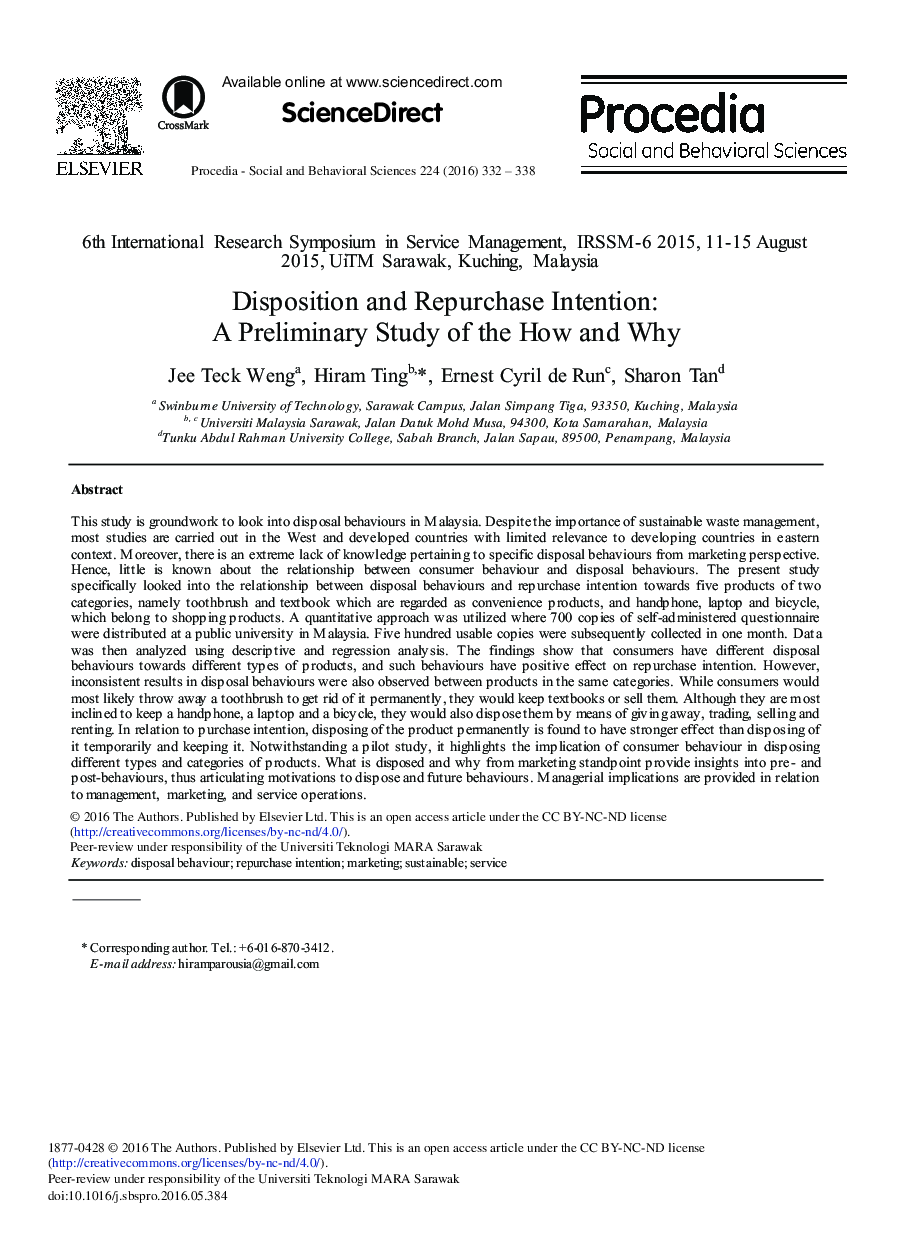| Article ID | Journal | Published Year | Pages | File Type |
|---|---|---|---|---|
| 1107419 | Procedia - Social and Behavioral Sciences | 2016 | 7 Pages |
This study is groundwork to look into disposal behaviours in Malaysia. Despite the importance of sustainable waste management, most studies are carried out in the West and developed countries with limited relevance to developing countries in eastern context. Moreover, there is an extreme lack of knowledge pertaining to specific disposal behaviours from marketing perspective. Hence, little is known about the relationship between consumer behaviour and disposal behaviours. The present study specifically looked into the relationship between disposal behaviours and repurchase intention towards five products of two categories, namely toothbrush and textbook which are regarded as convenience products, and handphone, laptop and bicycle, which belong to shopping products. A quantitative approach was utilized where 700 copies of self-administered questionnaire were distributed at a public university in Malaysia. Five hundred usable copies were subsequently collected in one month. Data was then analyzed using descriptive and regression analysis. The findings show that consumers have different disposal behaviours towards different types of products, and such behaviours have positive effect on repurchase intention. However, inconsistent results in disposal behaviours were also observed between products in the same categories. While consumers would most likely throw away a toothbrush to get rid of it permanently, they would keep textbooks or sell them. Although they are most inclined to keep a handphone, a laptop and a bicycle, they would also dispose them by means of giving away, trading, selling and renting. In relation to purchase intention, disposing of the product permanently is found to have stronger effect than disposing of it temporarily and keeping it. Notwithstanding a pilot study, it highlights the implication of consumer behaviour in disposing different types and categories of products. What is disposed and why from marketing standpoint provide insights into pre- and post-behaviours, thus articulating motivations to dispose and future behaviours. Managerial implications are provided in relation to management, marketing, and service operations.
